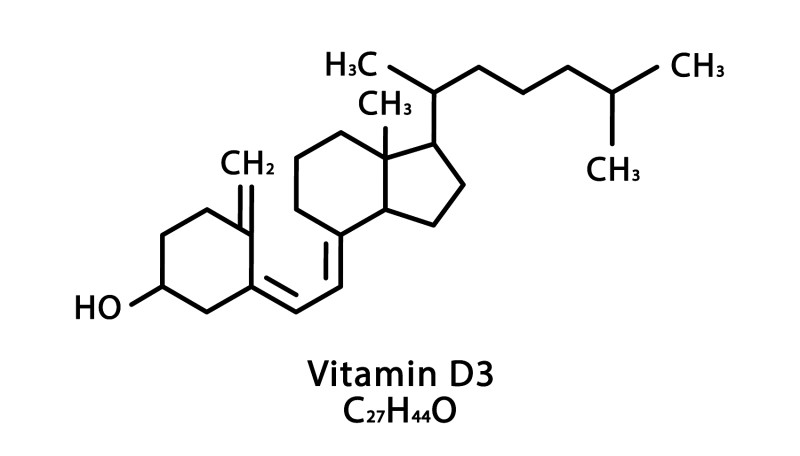

| Certificates/Standards: | N; |
| Monthly Output: | Not provided |
| Regional: | Not provided |
| Packaging Information: | Not provided |
| Mode Of Payment: | Not provided |
| Delivery Lead Time: | Not provided |
| Main Sales Markets: | North America,Central/South America,Western Europe,Eastern Europe,Australasia,Asia,Middle East,Africa |
| Sample Provided: | Yes |
| Sample Policy: | Not provided |
| Minimum Quantity: | Not provided |
Vitamin D3, also known as cholecalciferol, is a fat-soluble vitamin. Here is a description of vitamin D3 and some common uses:
Description:
•Sources: Vitamin D3 can be obtained from two main sources, synthesized through skin exposure to ultraviolet light, and ingested through foods such as fatty fish, cod liver oil, egg yolks, and dairy products.
•Conversion: Vitamin D3 is converted to the active form of vitamin D, 1, 25-dihydroxyvitamin D3, in the skin and liver.
•Physiological function: Vitamin D3 regulates the absorption and utilization of calcium and phosphorus in the body and is essential for bone health.
Purpose:
1. Bone health: Vitamin D3 is essential for maintaining bone health. It promotes the absorption of calcium and phosphorus in the intestine, which contributes to bone growth and maintenance of bone density. Vitamin D3 deficiency can lead to osteoporosis and rickets in children, and vitamin D3 supplementation can prevent and treat these conditions.
2. Immune regulation: Vitamin D3 plays an important role in regulation of the immune system. It can regulate the function of immune cells, enhance immune response, and fight infection and inflammation.
3. Cardiovascular health: Some studies suggest that vitamin D3 may be associated with cardiovascular health. Appropriate levels of vitamin D3 may help reduce the risk of cardiovascular disease.
4. Neurological health: Vitamin D3 is related to neurological health, it is involved in the development and function of nerve cells. Some studies have shown that vitamin D3 deficiency is associated with an increased risk of neurological disorders such as Parkinson's disease and multiple sclerosis.
5. Gene regulation: Vitamin D3 can affect gene expression and regulate a variety of biological processes and metabolic pathways.






